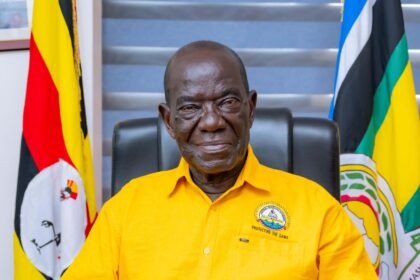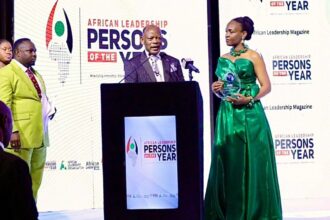By Rebecca Alowo
The parliament has a crucial role to play in various national development processes – including Water development. Parliamentarians being representatives of people are also mandated to speak on behalf of vulnerable groups like farmers, to ensure that development plans are informed by the real priorities of the people. In practice, they are expected to adopt requisite legislation, approve budget allocations, and exercise oversight over expenditures. Mapping the roles of parliaments onto the elements of good governance indicates the contribution which parliaments can make to the delivery of water services through National Governance Systems. Parliament works through committees which have been largely non-partisan, discussions are highly technical and involve a great deal of interface with government and nongovernmental technical experts.
During the recent parliamentary engagement, a number of issues were raised by the different committees and pertinent observations on water supply for example government departments do not have a comprehensive approach towards drought management and early warning systems. This lack of prioritization was also noted by the Natural Resources Committee, this limited priority also explains the lack of water resources funding at different levels. The constant budget cuts to water affairs have also been noted by the Natural Resources Committee and yet water is life and sanitation is dignity. Parliament thus needs to build the case for ensuring balance in the allocation of financial and technical resources to optimally respond to the increasing competing and vital pressures for water for production and water for domestic uses. This however cannot be effectively achieved in isolation, there is need to work with other development partners to ensure adequate representation of issues and promotion of transparency and accountability.
Both the Social Services Committee and the Natural Resource Committee are mandated to oversee aspects of water development in the line Ministries of Agriculture, Health, Education and Sports and Environment. However, borehole development issues do not compete favourably on the list of priorities under discussion by the committees in parliament. This is in a way similar to the challenges currently faced countrywide on the lack of prioritization of responsible development and regulation of water infrastructure. This speaks to the low level of funding and unclear implementation framework under borehole infrastructure development.
Climate change and drought management continue to be discussed under different fora with hence the issue facing less prioritization during such discussions. A move towards closer collaboration on climate change issues in parliament might be better achieved through informal forums rather than formal parliamentary structures like committees of the House. One of such informal structure is a parliamentary Forum. Parliamentary fora are informal groups recognized by parliament through which members freely interact on pertinent issues of their interest. Through such fora, Members of Parliament (MPs) have greater opportunities to link with civil society and other development partners. Civil Society Organisations (CSOs) working with local Non-Governmental Agencies and Universities have been responsible for some of the most cost-effective initiatives to improve and extend provision of water services mainly to the vulnerable water user groups.
External agencies have contributed to functionality of water supplies as one of their core focus for both existing and new water sources and have extensive knowledge on the challenges faced in the water services sector through their experience. Drawing from their experience, agencies external to government departments can therefore play a vital role in increasing the effectiveness of parliament on water infrastructure provision issues through the provision of high quality and timely research and analysis, presentation of petitions with regard to increased financing of water for production, policy briefs on water infrastructure development, ICT for improved decision making of water service delivery and increased interaction to support parliament in planning, budgeting and monitoring to ensure improved country wide borehole development through these parliamentary forums.
Development partners and donors also share some responsibility for efficient parliamentary performance. The focus of donor interventions in support of good governance has however tended to focus on the executive. Whilst there is clear value in donors working closely with the executive, an overly-exclusive focus on this branch of government does risk marginalizing parliamentarians. For this reason, a Parliamentary Forum on water services should include MPs especially those MPs that already sit on the natural Resources and Social Services Committee, water institutes, the civil society and development partners. In effect these forums enable the establishment of a platform through which politicians, technocrats, civil society, academia and the private sector can exchange information, knowledge and expertise.
In summary the benefits of a water services parliamentary forum are: improved and increased commitment towards the prioritization of infrastructure, the enhancement of operational structures and frameworks for delivery of water services with a significant increase in budget allocation for water services/affairs and finally a champion in the recognition of water rights.
Rebecca Alowo a DEng student at Central University of Technology in the Free State, South Africa
Do you have a story in your community or an opinion to share with us: Email us at Submit an Article






